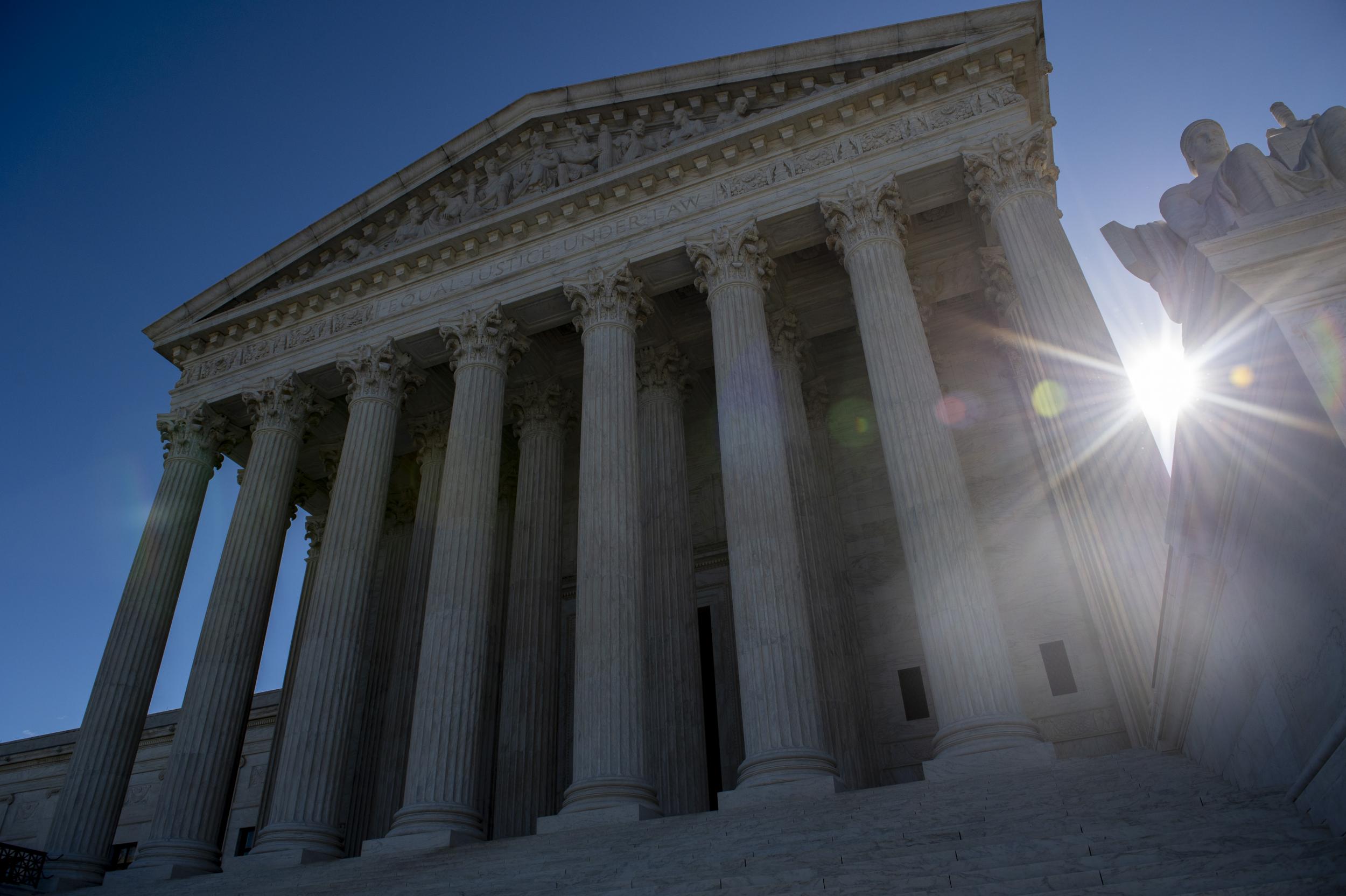Supreme Court rules in favour of clothing designer on ‘immoral or scandalous’ trademarks
High court says century-old ban on controversial trademarks serves as impediment towards free speech

Your support helps us to tell the story
From reproductive rights to climate change to Big Tech, The Independent is on the ground when the story is developing. Whether it's investigating the financials of Elon Musk's pro-Trump PAC or producing our latest documentary, 'The A Word', which shines a light on the American women fighting for reproductive rights, we know how important it is to parse out the facts from the messaging.
At such a critical moment in US history, we need reporters on the ground. Your donation allows us to keep sending journalists to speak to both sides of the story.
The Independent is trusted by Americans across the entire political spectrum. And unlike many other quality news outlets, we choose not to lock Americans out of our reporting and analysis with paywalls. We believe quality journalism should be available to everyone, paid for by those who can afford it.
Your support makes all the difference.The US Supreme Court has sided with a California fashion brand called FUCT in a case involving a century-old law banning the registration of “scandalous or immoral” trademarks nationwide.
The provision is an unconstitutional restriction on free speech, the court ruled on Monday.
The ruling means people and companies behind applications that previously failed as a result of the scandalous or immoral provision can re-submit them for approval, and that new trademark applications cannot be refused on the grounds they are scandalous or immoral.
Justice Elena Kagan said in reading her majority opinion that the most fundamental principle of free speech law is that the government can’t penalise or discriminate against expression based on the ideas or viewpoints they convey. Lanham Act’s ban on “immoral or scandalous” trademarks does just that, the justice added.
Donald Trump’s administration had previously defended the provision, arguing that it encouraged trademarks suitable for all audiences.
Between 2005 and 2015, the United States Patent and Trademark Office ultimately refused about 150 trademark applications a year as a result of the provision.
Those who were turned away could still use the words they were seeking to register, but they didn’t get the benefits that come with trademark registration.
Going after counterfeiters who supplied false trademark registrations also became difficult as a result of the federal law.
In an opinion for herself and five colleagues, both conservatives and liberals, Ms Kagan called the law’s immoral or scandalous provision “substantially overbroad.”
“There are a great many immoral and scandalous ideas in the world (even more than there are swearwords), and the Lanham Act covers them all. It therefore violates the First Amendment,” she wrote.
Ms Kagan’s opinion suggested that a narrower law covering just lewd, sexually explicit or profane trademarks might be acceptable.
The Associated Press contributed to this report
Join our commenting forum
Join thought-provoking conversations, follow other Independent readers and see their replies
Comments